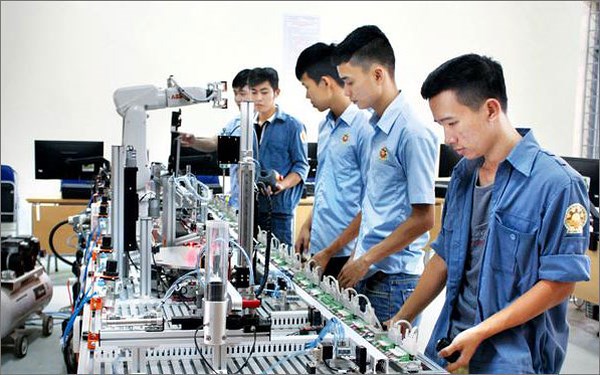Doãn Giang Sep 1 2018 11:00AM GMT + 7
About the viewpoint of vocational training in the 4.0, the principal of a vocational college said: Now we have to change the training in the direction of what the business practice requires, not just teach what I have. Teaching methods must inspire learners to have passion, to find new ones. And, in the process of learning, the learner will be creative. And, from the creativity of the pupil, the teacher accumulates to develop his lectures, which can be applied to the following courses.

Deputy Minister of Labor, War Invalids and Social Affairs Le Quan said that the industrial revolution (CMCN) 4.0 has been making profound changes to many aspects of the process of developing education and training in general and in particular. Although we are influenced by the influence of the 4.0 wave, the teacher's role in teaching is always valuable. And, in the age of knowledge creation, the role of the teacher becomes more important to develop the capacity of the learner, leading and orienting the profession as well as connecting learners and businesses.
Vocational education and training should be closely linked to the needs of the business. At the same time, localities need to integrate resources (central and local budgets), other programs, projects and projects and encourage NGO projects and social mobilization. To provide vocational training for village laborers according to the policies, objectives and processes of the Scheme. To prioritize the organization of vocational training for rural laborers who are entitled to preferential policies for people with meritorious services to the revolution, poor households, ethnic minority people, persons with disabilities, Near-poor households, female workers. To review, update and supplement vocational training needs of rural laborers according to the requirements of agricultural restructuring and economic restructuring and labor structure in line with socio-economic development orientation. of the city. To ensure vocational training for rural laborers associated with the recruitment demands of enterprises and stable incomes. Vocational educationa and training for rural workers is not provided when the workplace and the income level of the job are not available.
Vocational training, job creation for laborers is a key task, important in sustainable poverty reduction, ensuring social security, promoting socio-economic development in the province and city.
Giang Doan